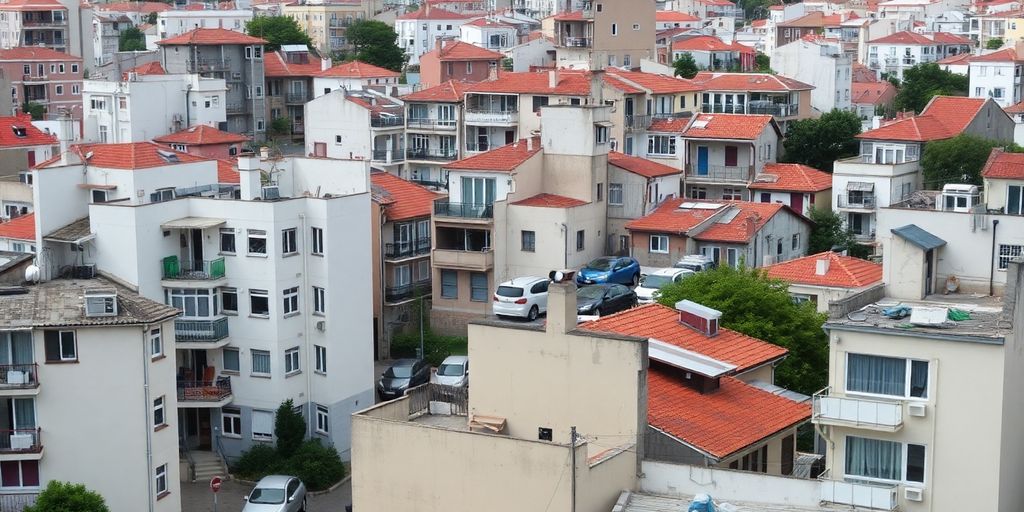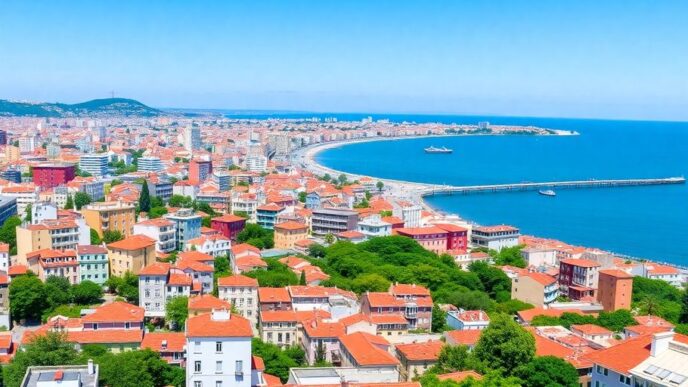Portugal’s new housing law, which allows for the reclassification of rural land to urban status for housing development, officially came into effect on January 29, 2025. This legislation has sparked significant debate among environmentalists, urban planners, and political parties, raising concerns about its potential impact on land use and housing affordability.
Overview of the New Law
The new legislation, known as Decree-Law 117/2024, modifies the Legal Regime of Territorial Management Instruments (RJIGT). It allows municipal authorities to reclassify rural land as urban, provided it is designated for housing construction. This change aims to increase the availability of land for residential development, a pressing issue in Portugal’s ongoing housing crisis.
Controversy Surrounding the Legislation
Despite the government’s intentions, the law has been met with fierce criticism. Environmentalists and various political parties have expressed concerns that the reclassification could lead to urban sprawl, loss of agricultural land, and environmental degradation. Critics argue that the law prioritizes real estate development over sustainable land use and could exacerbate existing housing affordability issues.
Political Reactions
The law has prompted a mixed response in the political arena. While the ruling party, the Socialists (PS), has proposed amendments to address some concerns, opposition parties such as the Left Bloc (BE) and the Communist Party (PCP) have called for a parliamentary review of the legislation. They argue that the law lacks sufficient public debate and transparency, potentially leading to speculative real estate practices.
Key Provisions of the Law
- Simplified Reclassification: Municipalities can now more easily convert rural land to urban status for housing.
- Public Housing Focus: At least 70% of the newly developed area must be allocated for public or affordable housing.
- Environmental Safeguards: Certain areas, such as those with high agricultural value or ecological significance, remain protected from reclassification.
Concerns from Experts
Experts from various fields, including urban planning and environmental science, have raised alarms about the potential consequences of the new law. They warn that allowing construction on rural land could lead to:
- Increased urbanization and loss of green spaces.
- Higher costs for local municipalities due to infrastructure demands.
- Fragmentation of agricultural land, threatening food security.
Future Implications
As the law takes effect, its long-term implications for Portugal’s housing market and environmental landscape remain to be seen. The government has indicated a willingness to adapt the legislation based on feedback from stakeholders, but the initial rollout has already set the stage for ongoing debates about land use and housing policy in the country.
In conclusion, while the new housing law aims to tackle Portugal’s housing crisis, it raises significant concerns about environmental sustainability and the potential for speculative real estate practices. The coming months will be crucial in determining how this legislation will shape the future of housing and land use in Portugal.









![boats docked near seaside promenade]](https://theportugaldaily.com/wp-content/uploads/2025/01/68dde244thumbnail-332x166.jpeg)
![boats docked near seaside promenade]](https://theportugaldaily.com/wp-content/uploads/2025/01/68dde244thumbnail-688x387.jpeg)



